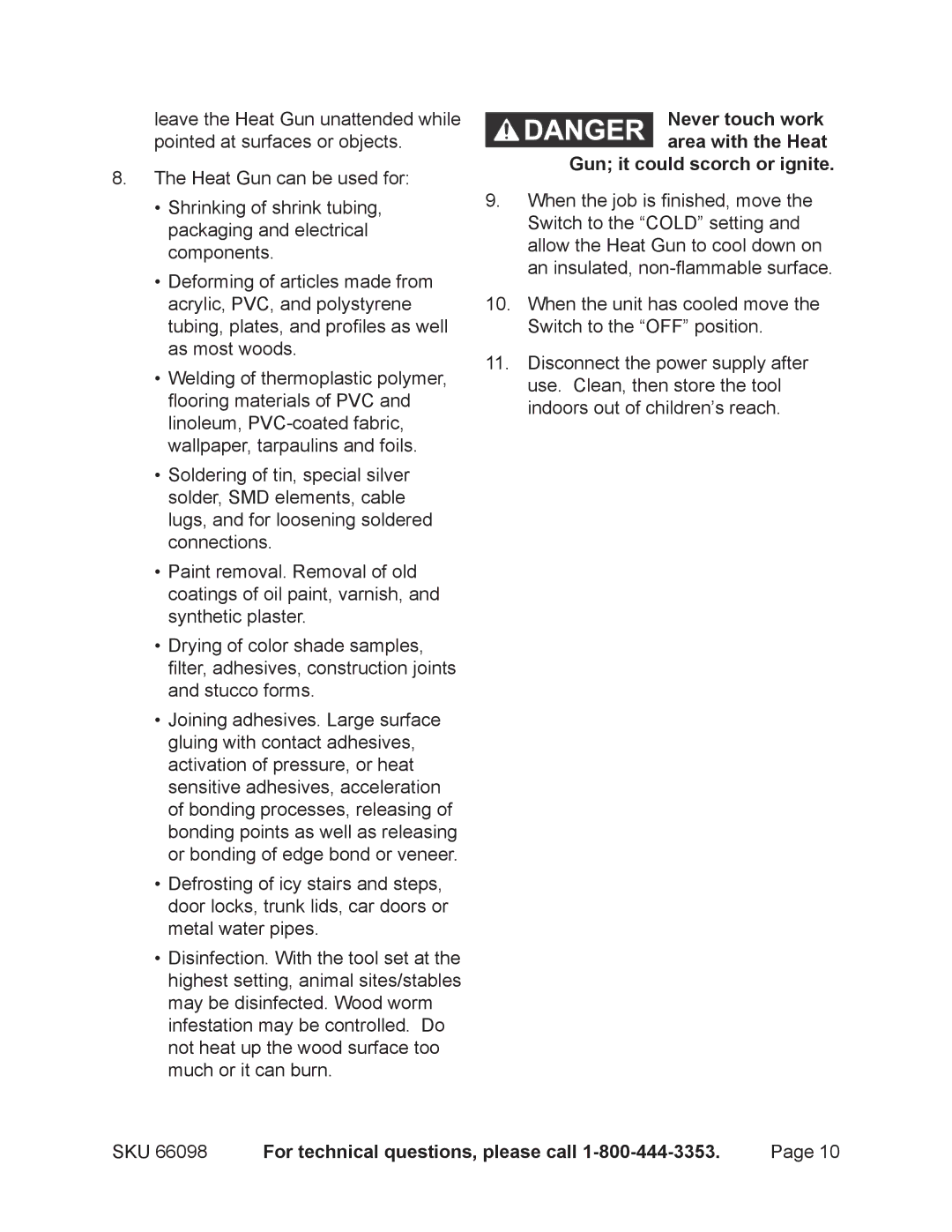leave the Heat Gun unattended while pointed at surfaces or objects.
8.The Heat Gun can be used for:
•Shrinking of shrink tubing, packaging and electrical components.
•Deforming of articles made from acrylic, PVC, and polystyrene tubing, plates, and profiles as well as most woods.
•Welding of thermoplastic polymer, flooring materials of PVC and linoleum,
•Soldering of tin, special silver solder, SMD elements, cable lugs, and for loosening soldered connections.
•Paint removal. Removal of old coatings of oil paint, varnish, and synthetic plaster.
•Drying of color shade samples, filter, adhesives, construction joints and stucco forms.
•Joining adhesives. Large surface gluing with contact adhesives, activation of pressure, or heat sensitive adhesives, acceleration of bonding processes, releasing of bonding points as well as releasing or bonding of edge bond or veneer.
•Defrosting of icy stairs and steps, door locks, trunk lids, car doors or metal water pipes.
•Disinfection. With the tool set at the highest setting, animal sites/stables may be disinfected. Wood worm infestation may be controlled. Do not heat up the wood surface too much or it can burn.
Never touch work area with the Heat Gun; it could scorch or ignite.
9.When the job is finished, move the
Switch to the “COLD” setting and allow the Heat Gun to cool down on an insulated,
10.When the unit has cooled move the Switch to the “OFF” position.
11.Disconnect the power supply after use. Clean, then store the tool indoors out of children’s reach.
SKU 66098 | For technical questions, please call | Page 10 |
